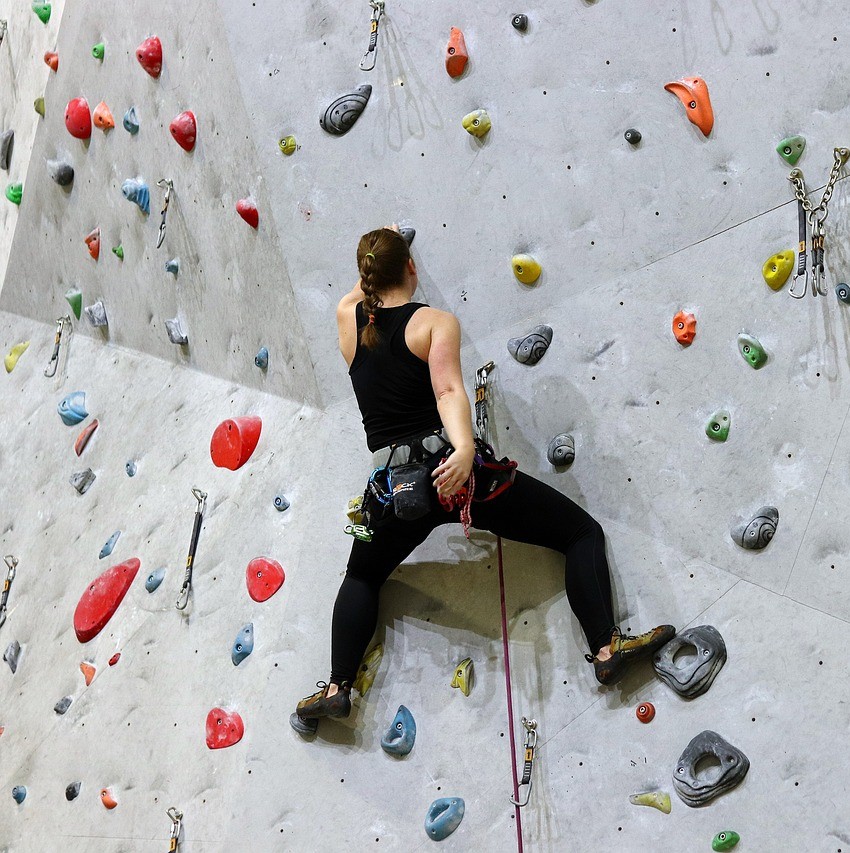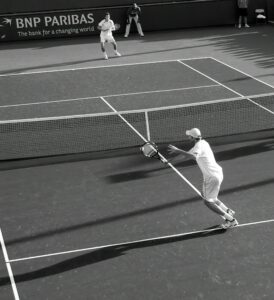In the world of sports, mental performance can be just as important as physical ability. Whether you’re preparing for a big game or working through a challenging season, staying mentally sharp is key to success. One powerful tool that athletes are increasingly turning to for enhancing mental performance is mindfulness training. At Athletes Untapped, we understand how vital mental clarity and focus are to unlocking an athlete’s full potential. That’s why we integrate mindfulness techniques into our coaching programs to help athletes develop greater awareness, control, and resilience in their performance.
What is Mindfulness Training?
Mindfulness is the practice of being fully present and engaged in the moment, without distraction or judgment. It involves paying close attention to your thoughts, feelings, and bodily sensations, while maintaining a calm and focused state of mind. In sports, mindfulness helps athletes stay focused on the task at hand, maintain composure under pressure, and recover more quickly from setbacks.
Mindfulness training encompasses various techniques that help athletes strengthen their mental focus and emotional regulation. These techniques might include breathing exercises, body scans, meditation, or simply practicing awareness during practice and competition.
Why Mindfulness Training Matters for Athletes
The benefits of mindfulness training extend far beyond just improving focus. Here’s why mindfulness is essential for athletes:
- Enhanced Focus and Concentration: In the heat of competition, distractions are inevitable—crowds, self-doubt, fatigue, and pressure can all interfere with an athlete’s ability to stay focused. Mindfulness helps athletes cultivate the ability to concentrate fully on the task at hand, enabling them to block out distractions and perform at their best.
- Emotional Regulation: Athletes experience a wide range of emotions, from excitement and joy to frustration and anger. Mindfulness allows athletes to recognize these emotions without becoming overwhelmed by them. By acknowledging emotions in the moment, athletes can respond with greater emotional control, which is essential for staying calm under pressure and avoiding mental burnout.
- Stress Reduction: The demands of training, competition, and high expectations can lead to significant stress. Mindfulness techniques like deep breathing and meditation help athletes manage stress more effectively, keeping them calm and focused even in high-pressure situations.
- Improved Recovery: Mindfulness helps athletes recover not only physically, but also mentally. By practicing mindfulness, athletes can quiet their minds after intense practices or games, allowing them to reflect, recover, and regain energy more efficiently.
- Increased Resilience: Mindfulness helps athletes develop the mental resilience needed to bounce back from mistakes, injuries, or setbacks. With a mindful approach, athletes are able to reset quickly and refocus on their goals, rather than dwelling on past failures or negative outcomes.
- Greater Self-Awareness: Mindfulness encourages athletes to tune into their body and mind, becoming more aware of how they’re feeling physically and emotionally. This awareness helps athletes better understand their strengths and weaknesses, enabling them to make necessary adjustments during training and competition.
How Athletes Untapped Uses Mindfulness Training
At Athletes Untapped, we recognize that every athlete has unique mental and emotional needs. That’s why we integrate mindfulness training into our coaching programs to help athletes perform at their best, both mentally and physically. Here’s how we incorporate mindfulness into our athlete development process:
1. Mindfulness-Based Breathing Exercises
Breathing is one of the simplest and most effective mindfulness techniques. At Athletes Untapped, we teach athletes to use deep breathing exercises to calm their nerves and stay focused during high-pressure moments. This technique is especially helpful when athletes need to regain composure, whether it’s before a big competition or in the middle of a challenging game.
2. Body Scan and Awareness
We incorporate body scan exercises to help athletes become more aware of their physical sensations. This mindfulness practice involves paying attention to areas of tension or discomfort in the body and using relaxation techniques to release that tension. It’s a great way to tune into one’s body and prevent mental or physical burnout.
3. Focused Attention Training
During training, we guide athletes in practicing focused attention on specific tasks or techniques. For example, an athlete might focus solely on the movement of their body while performing a drill or concentrate on their breathing during a workout. This type of mindfulness training helps athletes improve their attention span, allowing them to stay focused on the present moment.
4. Guided Meditation
Guided meditation is a powerful tool for athletes to connect with their thoughts and feelings. We offer meditation sessions that help athletes visualize success, let go of negative self-talk, and clear mental clutter. Through regular meditation practice, athletes can build mental clarity, stay calm under pressure, and improve their overall well-being.
5. Mindfulness in Everyday Training
We encourage athletes to bring mindfulness into every aspect of their training, from warming up to post-workout reflection. By staying mindful throughout their practice sessions, athletes can develop better body awareness, improve technique, and make more intentional progress toward their goals.
6. Visualization and Mental Rehearsal
Mindfulness training also overlaps with visualization techniques. At Athletes Untapped, we incorporate mindfulness-based visualization exercises where athletes mentally rehearse successful performances, focusing on their actions, emotions, and mindset. This mental training helps athletes boost confidence, stay calm under pressure, and perform with clarity during competition.
The Long-Term Benefits of Mindfulness Training for Athletes
Incorporating mindfulness into an athlete’s routine offers long-term benefits that extend well beyond individual performances or events. These benefits include:
- Increased Consistency: Mindfulness helps athletes perform at a high level consistently. By practicing mindfulness techniques, athletes can reduce mental distractions and stay focused on their training and performance over the long term.
- Improved Mental Clarity: Mindfulness helps athletes maintain a clear mental state, which is crucial when making quick decisions or reacting to unexpected situations during competition.
- Mental Toughness: Athletes who regularly practice mindfulness become more resilient in the face of adversity. Whether it’s dealing with an injury, overcoming a mistake, or persevering through a tough match, mindfulness helps athletes stay mentally tough and continue pushing forward.
- Healthier Relationships: Mindfulness training also fosters emotional intelligence, which can improve communication and relationships with coaches, teammates, and family members. Athletes with higher emotional intelligence are better able to navigate social dynamics, collaborate with teammates, and maintain a positive support system.
- Lifelong Mental Skills: The skills learned through mindfulness training—such as self-awareness, emotional control, and stress management—can benefit athletes long after they leave the playing field. These mental tools can enhance every aspect of life, from personal relationships to career success.
Start Your Mindfulness Journey with Athletes Untapped
At Athletes Untapped, we believe that developing a strong mental game is just as important as physical training. Mindfulness training is one of the most effective ways for athletes to improve their focus, reduce stress, and perform at their highest level. Through personalized coaching and mindful practices, we help athletes unlock the mental skills they need to thrive in their sport.




